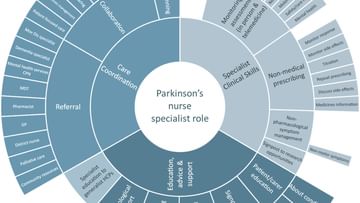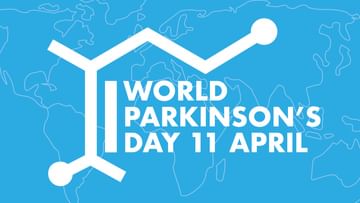International twist to delegate projects this year
NewsProject presentations had an extra twist this year with some delegates presenting via video from afar, explaining how they are changing services in their part of the country (or world in some cases).
MasterClass graduates are changing the face of patient care. Through their projects, graduates have implemented changes that are making a valuable impact on service development and a real difference to patient care.
The intermodule project is an integral part of the Parkinson's and MS MasterClasses. Attendees undertake a workplace project on an issue within their own area. This might be around service delivery, patient management or an aspect of drug management and might involve a service description, an audit or research. The project concludes with presentation to the course members and Faculty in Module 2.
Dr Rupali Sharma presented from Wellington, New Zealand, on her audit of the inpatient management of Parkinson's medication in a tertiary hospital. She did not find any major problems with the timing or doses of Parkinson's medications, and neither were there any discernible negative consequences as a result of the minor errors that has been picked up in the audit. Although this project had a small sample size, it is reassuring for now and suggests that that recent changes to the service have had a positive impact. Rupali is planning to implement further changes to help minimise medication error and then repeat the audit process in the future.
Lynn Shields is based in NHS Grampian in Scotland, and while not quite as exotic as New Zealand, the arrival of a new small person meant she couldn't present in person. Her project focused on the care home population in her area, and how their needs can be best met. Lynn found a significant number of Parkinson's patients in care homes and as expected they were all in the complex/palliative stage. She identified low levels of consultant/allied health professional input, very little discussion about advanced care planning, and little documentation of non-motor symptoms. Lynn would like to take these initial findings forward in the future to implement a system to improve multidisciplinary team discussion and the comprehensiveness of patient review.
It is wonderful to get presentations from delegates in far flung locations. Not only does it help connect up clinicians wherever they are, but offers a wonderful opportunity to share the ideas and experiences (and no doubt challenges) from different services.
Related articles

Managing the lesser known aspects Parkinson's
'The things you can't get from the books'
Parkinson's Academy, our original and longest running Academy, houses 20 years of inspirational projects, resources, and evidence for improving outcomes for people with Parkinson's. Led by co-founder and educational director Dr Peter Fletcher, the Academy has a truly collegiate feel and prides itself on delivering 'the things you can't get from books' - a practical learning model which inspires all Neurology Academy courses.

